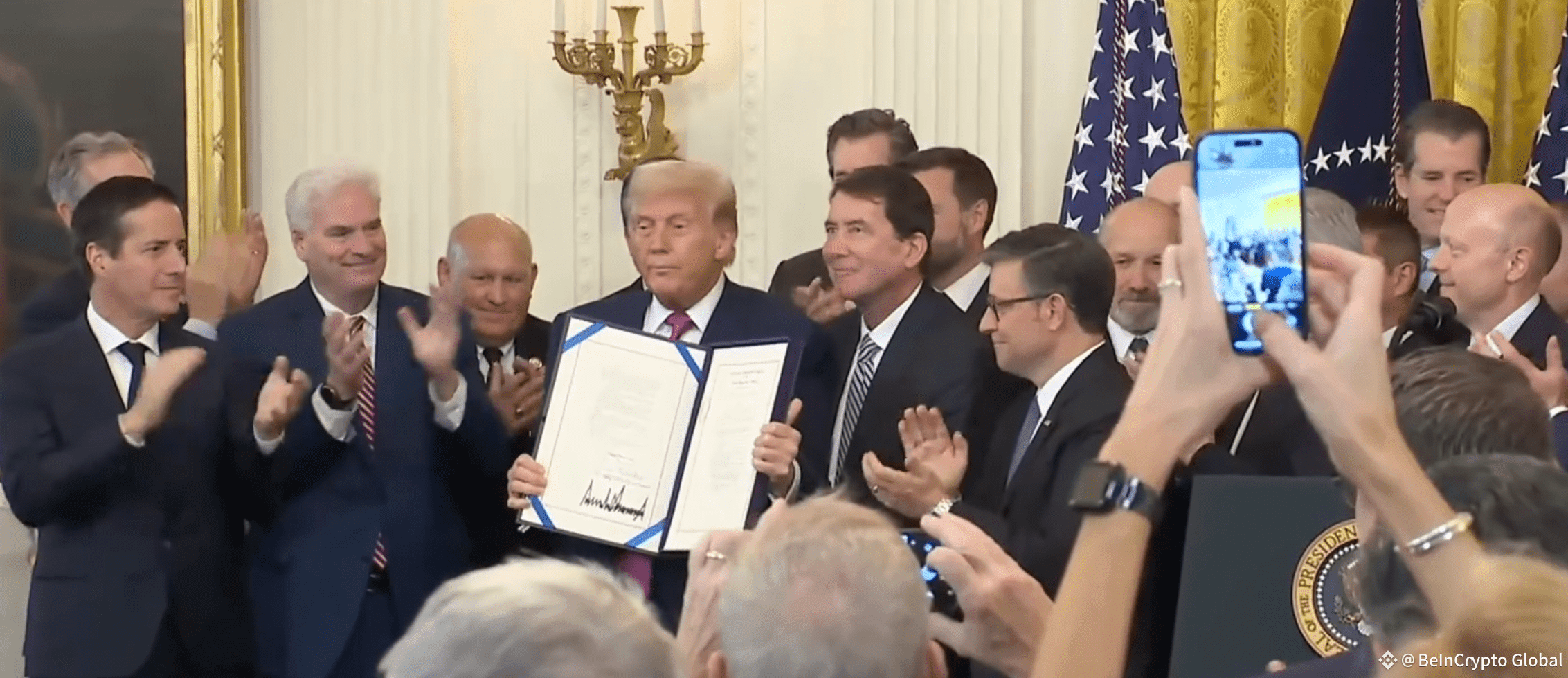President Donald Trump has signed the GENIUS Act into law, just one day after it passed the House in a 306–122 vote.
The bill marks the first-ever US federal crypto law, creating strict rules for stablecoin issuers—including full 1:1 reserves, regular audits, and registration with federal or state regulators.
Trump signed the bill during a closed-door session Friday morning. While celebrating the win, he jokingly told reporters, “It’s called the GENIUS Act. I think it’s named after me.”
 President Trump Signs GENIUS Act Stablecoin Bill Into Law
President Trump Signs GENIUS Act Stablecoin Bill Into Law
Crypto Czar David Sacks, who played a central role in last-minute negotiations, said the bill was “dead” earlier this week—until “we had a secret weapon, a deal breaker as commander in chief,” referring to Trump’s intervention.
Despite bipartisan support for the bill, some hardline Republicans remain opposed.
Representative Marjorie Taylor Greene posted on X (formerly Twitter), warning:
“Congress is passing a bill today (GENIUS Act) that opens the back door to a central bank digital currency (CBDC)… The Fed has been working on this for years… The ultimate goal is to move us to a cashless society.”
She criticized House Republicans for passing GENIUS without securing Senate support for a formal CBDC ban. That separate bill—the Anti-CBDC Act—has yet to clear the Senate.
Supporters of GENIUS argue the bill explicitly bans algorithmic stablecoins and requires full dollar reserves, offering a safe framework for regulated digital dollars—not government-controlled ones.
With Trump’s signature, the GENIUS Act becomes law immediately. US regulators now have until 2026 to draft implementation rules for stablecoin licensing and enforcement.
